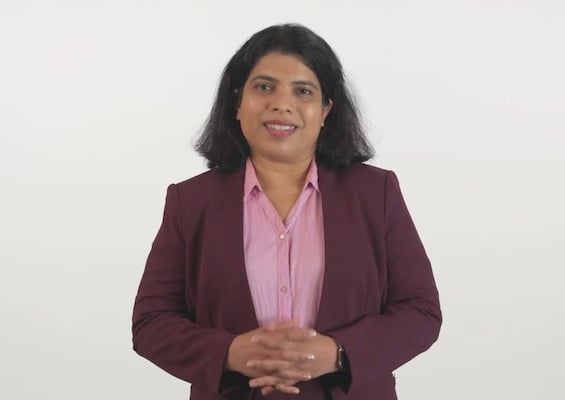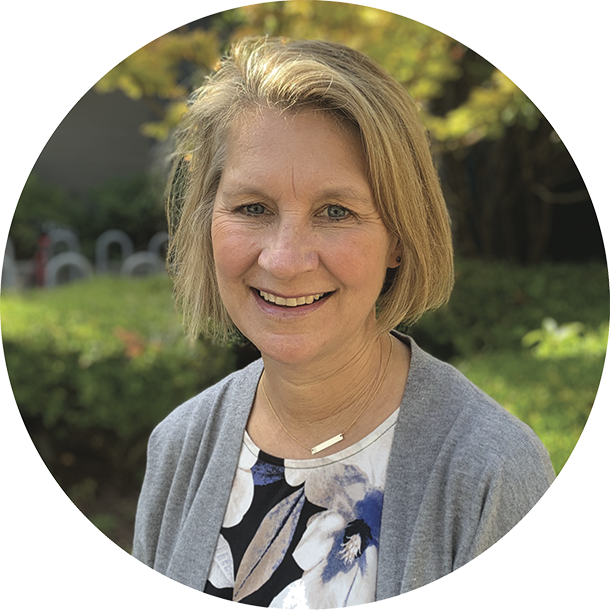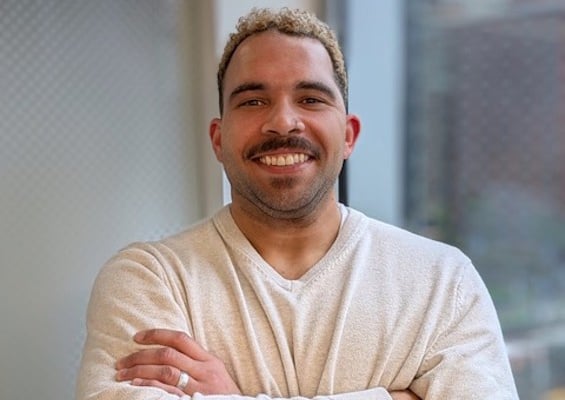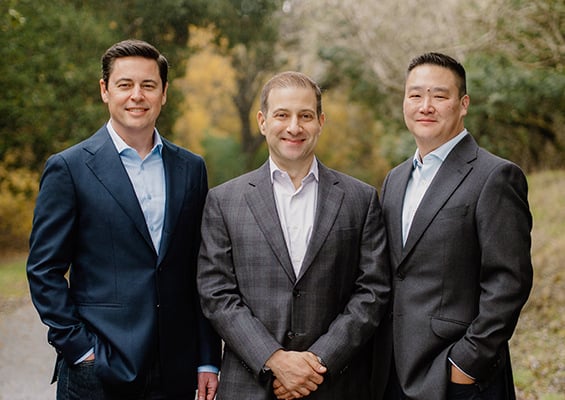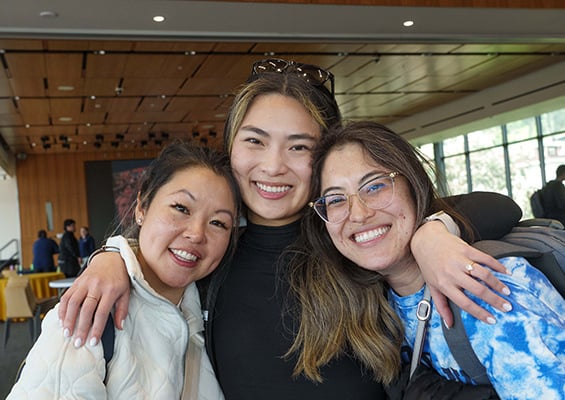You don’t have to talk long with a Berkeley Haas MBA student to realize what they discovered—sometimes to their surprise: The four Defining Leadership Principles are not marketing jargon. They are threaded throughout their experiences and their outcomes.
“The whole ecosystem has people pretty much embodying all the principles. For example, I think I'm a Student Always, but I wasn't very confident. I saw other folks who emulated Confidence Without Attitude. Question the Status Quo has never been me, but I saw them and I'm like, yeah, maybe I should do more of that,” said Charanya Venkatatamani, MBA 21, principal product manager at Amazon. “Everybody is learning from each other, or everybody is aspiring to cultivate the part of themselves that they see in others … We are constantly growing.”
Question the Status Quo
For Katherine Zepeda, MBA 24, the Defining Leadership Principles “gave us the common language to consider how we approach the world.” She singled out Question the Status Quo for its importance to her in her job as chief of staff to the CEO and a senior director at the digital coaching program, Beyond 12, and in her involvement with campus organizations. Those include being VP of DEI, Belonging & Justice in the Evening & Weekend MBA Association and a member of the Student Advisory Board of the Center for Equity, Gender, and Leadership. It is essential, she said, “to think about why things are done in a certain way and to invite other perspectives.”
Her classmate Marissa Maliwanag, MBA 24, senior manager, Global Logistics & Provisioning at Fuze, puts her own spin on that principle. “You also have to be willing to question how your mind works, and how you think. You have to be open to new ideas, new perspectives, and new ways of tackling problems,” she said.
We need to challenge ourselves and in doing so we make amazing things happen."
Chris Dekmezian, MBA 24, a product manager at QuantumScape, appreciates that, in the classroom, Questioning the Status Quo leads to “differing opinions and lively debate, but that's all accepted within the community.” Alan Duong, MBA 22, a consultant at EY-Parthenon, builds on that idea. He said, “if we surround ourselves with yes-men, we're never actually going to advance anywhere in life. We need to play devil's advocate. We need to challenge ourselves and in doing so we make amazing things happen.”
Confidence Without Attitude
Chloe Kauffman, MBA 23, a product manager with Cisco, points out how the Defining Leadership Principles relate to each other. “To actually be a change maker involves Questioning the Status Quo,” she said, “but having that Confidence Without Attitude is really key.” Her colleague at Cisco, Engineering Product Manager Shilpa Worlikar, MBA 21, said her Berkeley Haas studies “definitely made me more confident in taking whatever challenges that may come in my professional or personal life. And this all comes with humility.”
Putting her own spin on the topic, Kristine Kushner, MBA 23, said with a smile, that “Confidence is great, and being able to execute without attitude is key to my wanting to be around these folks all the time.” Kristine moved into a strategy and corporate venture role at VMware in her first year in the Evening & Weekend MBA program.
Beyond Yourself
Alex Holden, MBA 23, manager of US Co-Brand Business Development & Partnerships at Visa, opens the lens up to consider the culture at Berkeley Haas. “The culture here is about support. It's about growing together as a community. It's not about pumping your chest and saying how great I am that I'm at Haas,” he said. “It's about using what we do here as a tool for our own careers, as well as bettering the community, which really leads to Beyond Yourself.”
Nana Lei, MBA 22, a senior consultant with Deloitte, knows she is not alone in thinking beyond her own career. “A lot of my classmates are thinking about how their work aligns with their own values and how we're impacting our societies,” she said. “Haas having defined Beyond Yourself as a principle aligns with my personal values. It demonstrates that it is the right path forward for leaders to think about the impact we're having on the communities that we touch.”
Student Always
For Jarrett Wright, MBA 22, a serial entrepreneur and most recently founder of Higher Rewards, “Truly listening is a courageous act. It's a humble act. It embodies the sense of Student Always.”
Ghita Soulimani, MBA 23, senior manager, Clinical Partnerships at healthcare startup Color, loves “having that light-bulb moment when a classmate or professor is sharing their knowledge or when you're hearing their experience and how what we're learning in class applies to their day to day.”
Being a Student Always comes naturally to Kyle McKenzie, MBA 23, vice president and senior regional director, Private Equity at Voya Investment Management. “I enjoy looking at not just what I'm working on but exploring different passions.” What he gained at Berkeley Haas was “a structure to think about things … that has been very beneficial.”
When the Defining Leadership Principles are woven together he concluded, “they help you become a better person, a better coworker, and really make you into the leader that you're going to come out of Haas being.”
Hear other students' views on the Defining Leadership Principles in this video.




